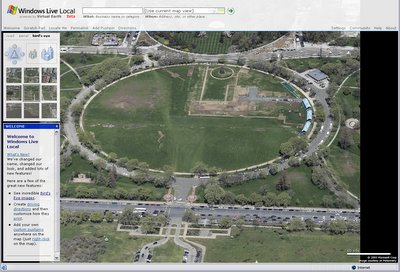Enterprise = Answering the wrong question
"Enterprise will follow legacy to become a common insult among software creators and users"
I don't think legacy is a bad thing (definitely better than failed projects), but I definitely agree with David H.H.'s post that the concept of "Enterprise" software has lost a lot of luster. I have been part of a couple of these roll outs, and it's never pretty. There's something about software that is supposed to everything that makes it do nothing particularly well. This "Coding Horror" post linked to in the comments is even more to the point. Enterprise buyers seem to purchase based on the number of checkmarks in the feature list, rather than based on how well any of those check marked features actually work. Would you buy a new car based purely on the spec sheet?
I can think of one situation where we had a large number of users on a client/server ArcView system that I had put together in 1996-1999. We worked out a nice locking system for multi-user access at different sites and built a lot of custom extensions. There was a massive push in 2001 to replace it with a web based "Enterprise" system based on ArcIMS. I tried to help them out for about six months, but it was obvious that ArcIMS at the time was only going to be able to provide about 50% of the features and performance to which the users had been accustomed. Plus, they now had to ask someone to add new base map data instead of being able to add it themsleves among other indignities. I escaped prior to the first deployment, which was a complete disaster and the project eventually skidded to a halt.
Honestly, there was no need to replace the system, it just needed a new name for political reasons as two projects were being merged. As it stands, they are still cruising along as we head into 2006. The project might actually make a little more sense now that we have some better web browsers available, but there are some tasks that you just don't want to do in a browser. I feel like the enterprise version of Photoshop would be browser based, with some workflow where you had to get managerial approval before you changed your color pallette.



